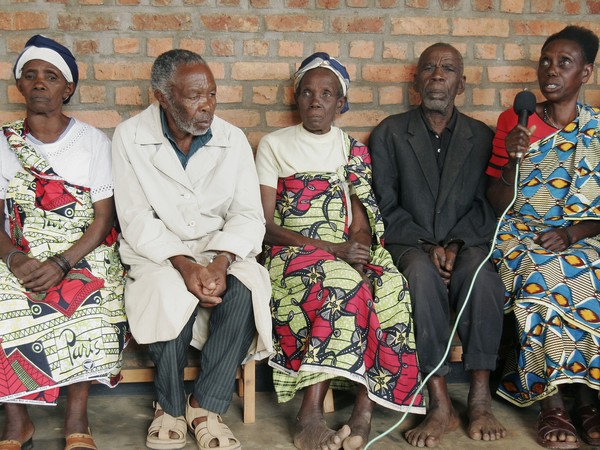Power sharing, history and genocide ideology - Rwandan key stakeholders meet to discuss

Two key conferences of stakeholders in July and August 2008 were organized by Interpeace and its local Rwandan partner IRDP (Institute of Research and Dialogue for Peace). The events marked the completion of IRDPs and Interpeace’s third phase in the Rwanda programme.
Over 200 influential representatives from different segments of Rwandan society attended these National Group Meetings. Parliamentarians, educators, religious leaders, civil society and government officials, as well as organizers of debate fora at district and provincial level and representatives from the diaspora actively participated.
At the July meeting, IRDP presented its research videos on the issue of power-sharing and the problem of arbitrary decision-making by political leaders. It was found that there was a desire for the electoral process and the appointment of magistrates to be more transparent. IRDP also outlined its concept for the next phase of work which is due to begin in 2009. It seeks, amongst other things, to involve the Rwandan diaspora more closely. As part of the meeting, a pupils’ group from one of the school dialogue clubs performed a play related to the themes of democracy and peace. The school dialogue clubs were set up after the second programme phase to promote awareness and discussion about conflict and peace amongst Rwanda’s youth. Inaugurated by Scott Weber, Director-General of Interpeace, the second National Group meeting revolved around the remaining themes:
- The controversial period from 1946-1962
- The negation of the genocide both inside and outside Rwanda
- The creation of employment in the context of poverty reduction.
Members of Interpeace’s local partners in Burundi and the Somalia region also took part in the discussion and presented their considerations in the closing speeches. Their attendance created a valuable opportunity for cross-team sharing and learning. IRDP’s research found that the scientific studies conducted on the 1946-62 period need to be integrated into school curricula, as conflict over land still remains a serious problem today. Also, a law defining and condemning the crime of Genocide negationism should be passed. The Rwandan education system, meanwhile, requires a reform encouraging qualifications in fields for which there is a high demand. The National Group recommended IRDP to concentrate its future efforts on the factors that threaten social cohesion, such as the spreading of the genocide ideology, the widening gap between the wealthy and the poor and on ways to improve peoples’ participation in the political decision-making process. Based on this new mandate, IRDP and Interpeace are currently formulating a strategy and plan of action for the next phase of the programme.
Overall, the meetings confirmed the remarkable results achieved by IRDP over the past seven years. Its programme has so far brought together more than 10’000 Rwandans to examine the events of the 1994 genocide and it is estimated that 10% of the population is aware of the Institute’s work. In addition, various laws and high-level political decisions have been directly influenced by the programme’s findings. As an external evaluation has recently confirmed, IRDP are indeed playing an important role in Rwanda’s efforts to strengthen societal cohesion, improve governance and to overcome its sad past.























